September 30 stands as one of history’s most eventful days, witnessing the rise and fall of empires, groundbreaking discoveries, and moments that shaped our modern world across centuries of human achievement.

Politics and Government Events on September 30
1938 – Munich Agreement Signed by European Powers
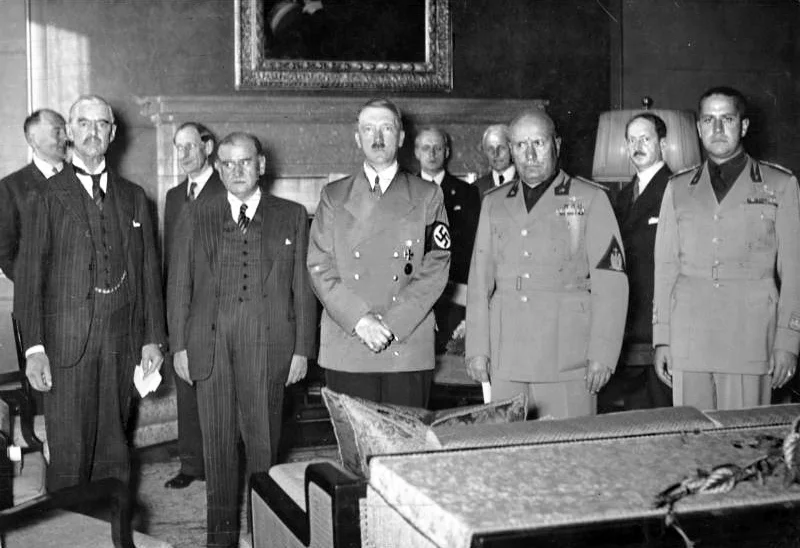
Britain, France, Germany and Italy signed the Munich Agreement, allowing Germany to annex the Sudetenland region of Czechoslovakia. This diplomatic settlement represented a failed attempt at appeasement of Nazi Germany.
The agreement ultimately proved disastrous, emboldening Hitler’s territorial ambitions across Europe. Many historians view this accord as a critical misstep that hastened the outbreak of World War II.
1939 – Polish Government-in-Exile Established
General Władysław Sikorski became prime minister of the Polish government-in-exile during World War II. His leadership provided crucial continuity for Polish resistance against Nazi occupation.
The exile government coordinated with Allied forces throughout the war. Sikorski’s administration maintained Polish sovereignty claims while organizing underground resistance networks across occupied territory.
1947 – Pakistan Joins United Nations
The newly independent nation of Pakistan gained membership in the United Nations on this date. This milestone marked Pakistan’s formal entry into the international community following partition from British India.
The membership allowed Pakistan to participate in global diplomatic discussions and peacekeeping efforts. This achievement established Pakistan’s sovereign status among world nations just months after independence.
1966 – Botswana Declares Independence
Bechuanaland declared its independence from British colonial rule and became the Republic of Botswana. The peaceful transition established one of Africa’s most stable democracies.
President Seretse Khama led the new nation toward economic prosperity through careful diamond resource management. Botswana’s independence marked a successful model for African decolonization.
2000 – Second Intifada Tragedy
Twelve-year-old Muhammad al-Durrah was shot and killed on the second day of the Second Intifada during Israeli-Palestinian conflict. The tragic incident was captured on camera and broadcast worldwide.
The boy’s death became a powerful symbol of civilian casualties in the conflict. This event intensified international attention on the ongoing Middle East peace process.
Military and Naval History on September 30
1915 – First Ground-to-Air Aircraft Shoot Down
Serbian soldier Radoje Ljutovac became the first person in history to shoot down an enemy aircraft using ground-to-air fire during World War I. This achievement marked a revolutionary moment in military aviation history.
Ljutovac’s successful shot demonstrated the vulnerability of early military aircraft to ground forces. His historic accomplishment changed tactical approaches to aerial warfare and air defense strategies.
1918 – Ukrainian Independence Battle Victory
Insurgent forces led by Nestor Makhno defeated the Central Powers at the battle of Dibrivka during the Ukrainian War of Independence. This victory demonstrated the effectiveness of anarchist military tactics.
Makhno’s forces used innovative guerrilla warfare strategies against conventional armies. The battle helped establish Ukrainian territorial control during the chaotic post-revolutionary period.
1941 – Babi Yar Massacre Concludes
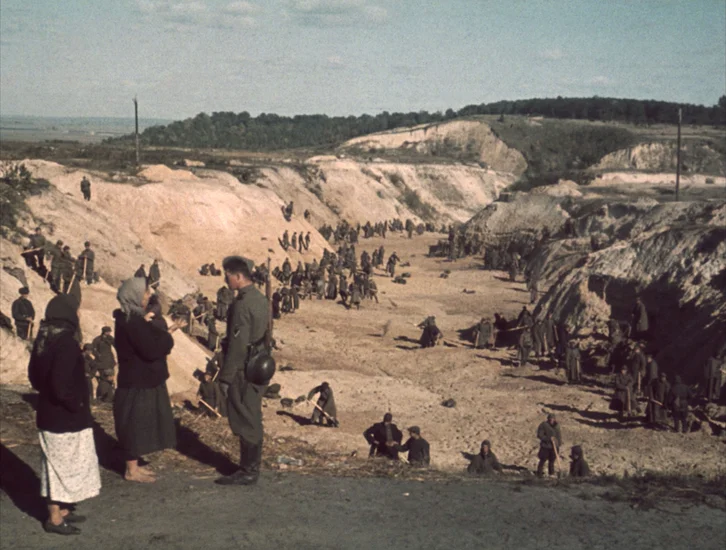
The horrific Babi Yar massacre came to an end after German forces murdered thousands of Ukrainian Jews in Kiev. This atrocity represented one of the Holocaust’s most devastating single events.
The massacre shocked the world and demonstrated the systematic nature of Nazi genocide. Babi Yar became a symbol of Holocaust remembrance and the importance of historical memory.
1944 – Operation Market Garden Counter-Offensive
German forces commenced a counter-offensive to retake the Nijmegen salient, which had been captured by Allied forces during Operation Market Garden. The German response demonstrated their continued fighting capability.
The counter-attack highlighted the challenges faced by Allied paratroopers in holding captured territory. This battle illustrated the complex nature of airborne operations in enemy territory.
1949 – Berlin Airlift Concludes
The Berlin Airlift officially ended after successfully supplying West Berlin through the Soviet blockade. This massive logistical operation demonstrated Western determination to maintain Berlin’s freedom.
Allied aircraft completed over 270,000 flights, delivering essential supplies to two million Berliners. The airlift’s success marked a crucial Cold War victory for democratic nations.
Science and Discovery Milestones on September 30
1954 – USS Nautilus Nuclear Submarine Commissioned
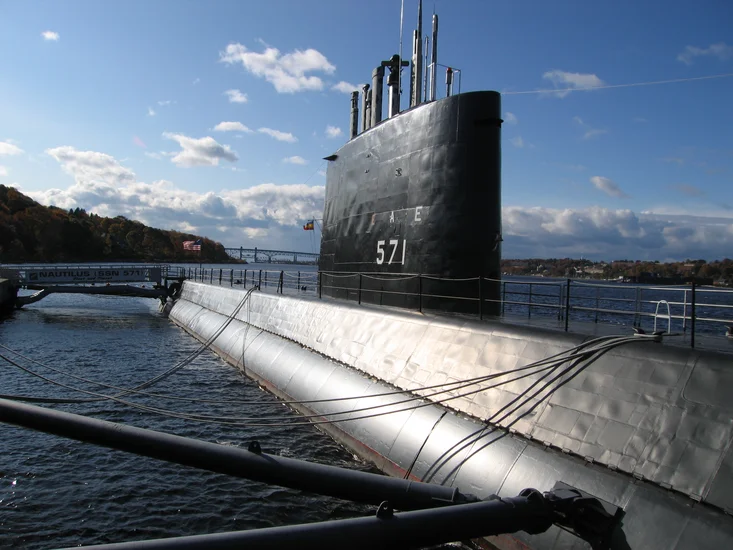
The U.S. Navy submarine USS Nautilus was commissioned as the world’s first nuclear-powered vessel. This revolutionary warship transformed naval warfare and underwater exploration capabilities.
The Nautilus could remain submerged for unprecedented periods without surfacing for air or fuel. Her nuclear propulsion system marked the beginning of the atomic age in naval technology.
1980 – Ethernet Specifications Published
Xerox, working with Intel and Digital Equipment Corporation, published the first Ethernet specifications for computer networking. This standard revolutionized digital communication and data sharing.
The Ethernet protocol enabled reliable high-speed data transmission between computers and network devices. This technology became the foundation for modern local area networks and internet infrastructure.
1999 – Tokaimura Nuclear Accident
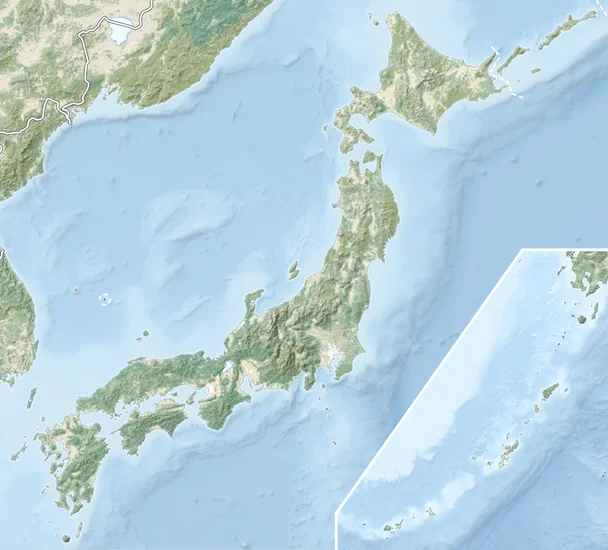
Japan’s second-worst nuclear accident occurred at the Tokaimura facility, causing the deaths of two technicians. The incident highlighted critical safety deficiencies in nuclear fuel processing.
The accident exposed workers and nearby residents to dangerous radiation levels. This disaster led to significant improvements in nuclear safety protocols and emergency response procedures.
2009 – Space Shuttle Endeavour Mission

Space Shuttle Endeavour launched on mission STS-68 to conduct Earth observation and atmospheric research. The mission advanced scientific understanding of global climate patterns and environmental changes.
Endeavour’s crew operated sophisticated radar equipment to map Earth’s surface and atmosphere. The mission provided valuable data for climate research and environmental monitoring programs.
Cultural and Arts Events on September 30
1906 – Royal Galician Academy Founded

The Royal Galician Academy, the Galician language’s most important linguistic authority, began operations in La Coruña, Spain. This institution championed the preservation and promotion of Galician culture.
The academy worked to standardize Galician grammar and vocabulary while promoting literature in the language. Their efforts helped maintain Galician cultural identity during periods of political suppression.
1938 – League of Nations Outlaws Civilian Bombing
The League of Nations unanimously outlawed “intentional bombings of civilian populations” in response to growing military aggression. This resolution represented an early attempt at international humanitarian law.
The declaration sought to protect non-combatants from aerial warfare’s devastating effects. Although enforcement proved difficult, this principle influenced later Geneva Convention provisions.
1939 – First Televised American Football Game

NBC broadcast the first televised American football game, marking a revolutionary moment in sports entertainment. The broadcast reached thousands of viewers in the New York metropolitan area.
This pioneering transmission demonstrated television’s potential for sports coverage. The successful broadcast helped establish television as a major medium for athletic competition.
2005 – Controversial Danish Cartoons Published
A Danish newspaper printed controversial drawings of the Prophet Muhammad, sparking international debate about freedom of expression. The publication generated widespread protests and diplomatic tensions.
The cartoons raised fundamental questions about religious sensitivity versus press freedom. This controversy highlighted cultural differences in approaches to free speech and religious respect.
Religious and Social Events on September 30
1907 – McKinley Memorial Dedicated
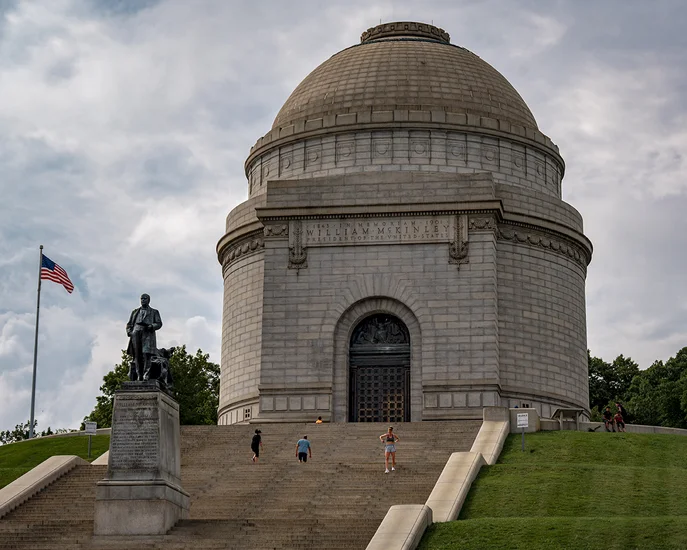
The McKinley National Memorial, honoring assassinated U.S. President William McKinley and his family, was dedicated in Canton, Ohio. The impressive monument became a symbol of American presidential legacy.
The memorial’s dedication drew thousands of visitors and dignitaries from across the nation. The structure stands as a testament to McKinley’s contributions to American industrial and territorial expansion.
1943 – U.S. Merchant Marine Academy Dedicated
President Franklin D. Roosevelt dedicated the United States Merchant Marine Academy to honor civilian mariners’ wartime service. The academy recognized the crucial role of merchant sailors in military logistics.
The institution trained officers for America’s commercial fleet during World War II. The academy’s establishment honored the bravery of merchant mariners who faced submarine attacks while delivering supplies.
1975 – Latur Earthquake Devastates India
A devastating 6.2 magnitude earthquake struck Maharashtra, India, killing 9,748 people and injuring 30,000 others. The disaster highlighted India’s vulnerability to seismic activity.
The earthquake destroyed entire villages and left thousands homeless across the region. International relief efforts helped rebuild affected communities and improve earthquake preparedness measures.
Business and Economic Events on September 30
1935 – Hoover Dam Dedicated
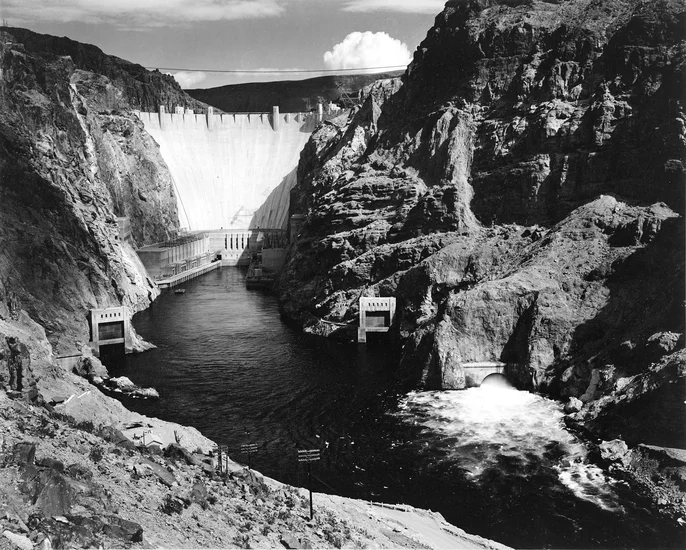
The Hoover Dam, spanning the border between Arizona and Nevada, was officially dedicated in a ceremony celebrating American engineering achievement. This massive project provided electricity and water to the southwestern United States.
The dam’s completion during the Great Depression demonstrated American industrial capability and provided thousands of jobs. The structure became a symbol of New Deal infrastructure investment and technological progress.
1968 – Boeing 747 Unveiled
The Boeing 747 jumbo jet was rolled out and shown to the public for the first time, revolutionizing commercial aviation. This massive aircraft doubled passenger capacity and transformed international travel.
The 747’s introduction made air travel more affordable and accessible to ordinary citizens. The aircraft’s success established Boeing as the world’s leading commercial aircraft manufacturer.
2016 – Van Gogh Paintings Recovered
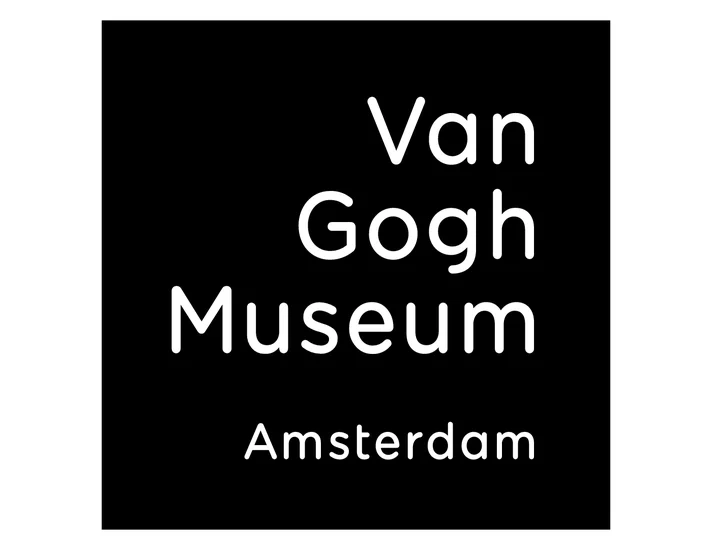
Two stolen paintings with a combined value of $100 million were recovered after being taken from the Van Gogh Museum in 2002. The recovery concluded a fourteen-year international investigation.
The artworks had been stolen in a daring nighttime heist that shocked the art world. Their recovery demonstrated the effectiveness of international cooperation in combating art theft.
Transportation and Infrastructure on September 30
1909 – RMS Mauretania Sets Atlantic Record
The Cunard Line’s RMS Mauretania completed a record-breaking westbound Atlantic crossing that remained unbeaten for twenty years. This achievement demonstrated British maritime supremacy in passenger service.
The Mauretania’s speed and luxury accommodations set new standards for transatlantic travel. Her record-breaking voyage helped establish regular high-speed passenger service between Europe and America.
1945 – Bourne End Rail Disaster
A devastating train crash in Hertfordshire, England, killed 43 people in one of Britain’s worst railway accidents. The disaster highlighted the need for improved railway safety measures.
The accident prompted comprehensive reviews of railway signaling and safety protocols. The tragedy led to significant improvements in British railway safety standards and emergency response procedures.
1978 – Finnair Flight Hijacking

Finnair Flight 405 was hijacked by Aarno Lamminparras in Oulu, Finland, during a domestic flight. The incident demonstrated the vulnerability of regional aviation to criminal activity.
The hijacking ended peacefully after negotiations with authorities. This event contributed to enhanced security measures at Finnish airports and improved hijacking response protocols.
Sports and Recreation on September 30
1947 – Historic World Series Begins
The 1947 World Series began with multiple historic firsts: the first to be televised, include an African-American player, exceed $2 million in receipts, feature a pinch-hit home run, and employ six umpires. This series transformed baseball broadcasting and racial integration.
Jackie Robinson’s participation marked a watershed moment in sports civil rights. The televised coverage reached millions of viewers, establishing baseball as America’s premier televised sport.
1970 – Dawson’s Field Hostage Resolution
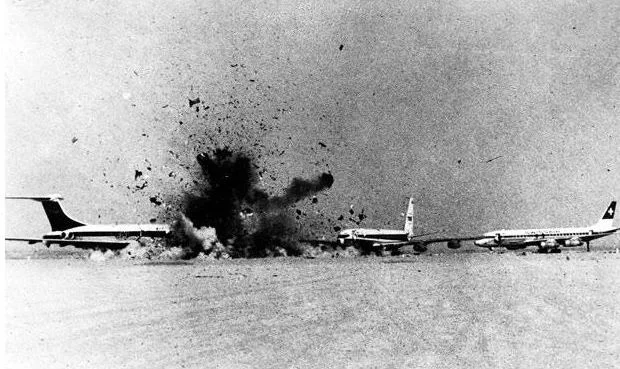
Jordan successfully negotiated with the Popular Front for the Liberation of Palestine for the release of remaining hostages from the Dawson’s Field hijackings. This diplomatic success ended a tense international crisis.
The resolution demonstrated the effectiveness of diplomatic negotiations in terrorist situations. The successful hostage release helped establish protocols for handling international hijacking incidents.
2016 – Hurricane Matthew Intensifies
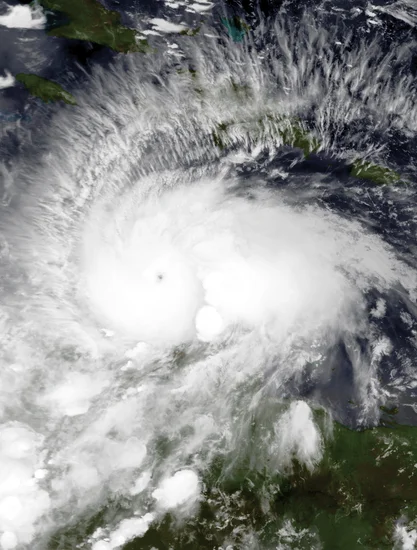
Hurricane Matthew became a Category 5 hurricane, making it the strongest hurricane to form in the Caribbean Sea since 2007. The storm threatened multiple Caribbean islands and the southeastern United States.
Matthew’s intensity demonstrated the increasing power of Atlantic hurricanes. The storm’s development prompted massive evacuation efforts and highlighted the importance of hurricane preparedness.
Notable Births on September 30
1924 – Truman Capote Born

American novelist Truman Capote was born in New Orleans, Louisiana, destined to become one of America’s most distinctive literary voices. His childhood experiences in the South profoundly influenced his writing style.
Capote would later revolutionize journalism with “In Cold Blood,” creating the non-fiction novel genre. His flamboyant personality and literary genius made him a cultural icon of twentieth-century American letters.
1928 – Elie Wiesel Born
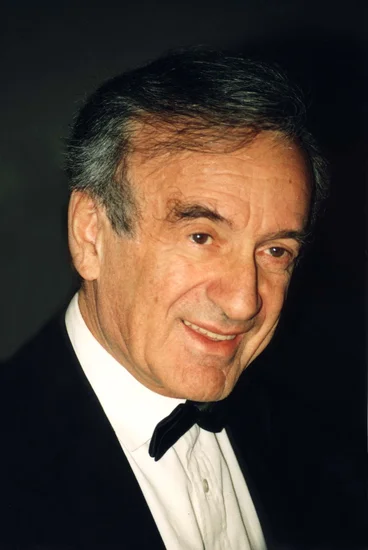
Holocaust survivor and author Elie Wiesel was born in Romania, later becoming a Nobel Prize laureate and human rights advocate. His experiences during World War II shaped his lifelong commitment to social justice.
Wiesel’s memoir “Night” became one of the most powerful accounts of Holocaust survival. His writings and activism helped ensure that the world would never forget the horrors of genocide.
1931 – Angie Dickinson Born
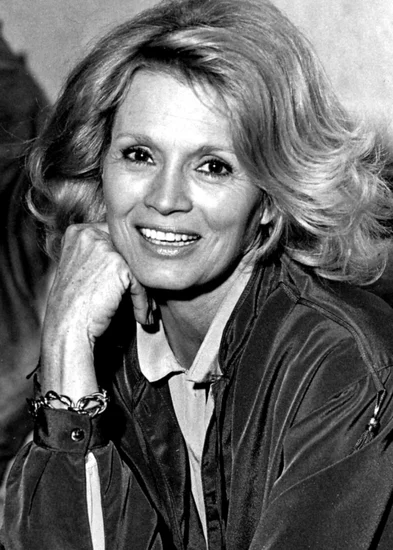
American actress Angie Dickinson was born in North Dakota, later becoming a Hollywood icon and television star. Her early performances in westerns and crime dramas established her as a versatile performer.
Dickinson’s role in “Police Woman” made her one of television’s first female action heroes. Her career spanning six decades influenced generations of actresses in action and drama roles.
1943 – Johann Deisenhofer Born

German-American biochemist Johann Deisenhofer was born in Bavaria, later becoming a Nobel Prize laureate for his work on protein crystallography. His research revolutionized understanding of biological structures.
Deisenhofer’s discoveries advanced medical research and drug development capabilities. His work on photosynthesis proteins provided crucial insights into solar energy conversion processes.
1951 – Barry Marshall Born

Australian physician Barry Marshall was born in Western Australia, later winning the Nobel Prize for discovering the bacterial cause of stomach ulcers. His groundbreaking research challenged established medical doctrine.
Marshall famously infected himself with bacteria to prove his theory about ulcer causation. His courage and scientific rigor revolutionized treatment for millions of ulcer patients worldwide.
1969 – Ehud Olmert Born

Israeli lawyer and politician Ehud Olmert was born in Binyamina, later serving as Israel’s 12th Prime Minister. His political career spanned several decades of Israeli government service.
Olmert’s leadership during challenging periods shaped modern Israeli politics. His tenure as Prime Minister occurred during significant regional conflicts and diplomatic negotiations.
1975 – Marion Cotillard Born

French actress Marion Cotillard was born in Paris, later becoming an Academy Award winner and international film star. Her early training in classical theater prepared her for diverse roles.
Cotillard’s portrayal of Édith Piaf in “La Vie en Rose” earned her an Oscar. Her bilingual career has bridged French and American cinema with remarkable success.
1982 – Lacey Chabert Born

American actress Lacey Chabert was born in Mississippi, later becoming known for her roles in television and film. Her early career began with voice acting and teen-oriented productions.
Chabert’s performance in “Mean Girls” established her as a pop culture icon. Her continued success in television movies has made her a recognizable face in family entertainment.
1995 – Max Verstappen Born

Dutch racing driver Max Verstappen was born in Belgium, later becoming Formula One World Champion. His father’s racing legacy provided early exposure to motorsport competition.
Verstappen’s aggressive driving style and technical skill have redefined modern Formula One racing. His championship victories have established him as one of the sport’s elite competitors.
Notable Deaths on September 30
1955 – James Dean Dies
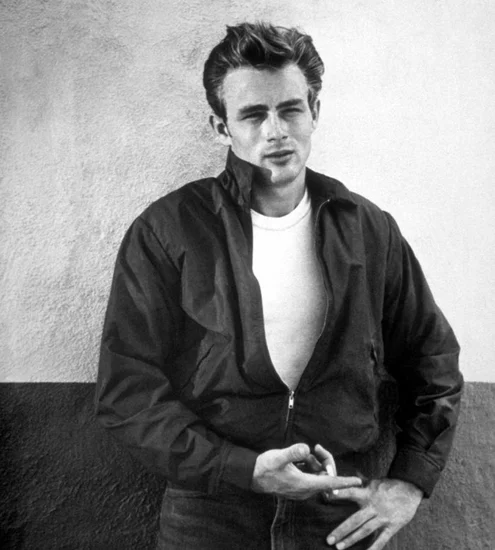
American actor James Dean died in a car accident at age 24, becoming a cultural icon of teenage rebellion. His brief career produced only three major films but left an indelible mark on cinema.
Dean’s death occurred at the height of his fame, cementing his status as a Hollywood legend. His performances in “Rebel Without a Cause” and “East of Eden” continue influencing actors today.
1985 – Charles Francis Richter Dies
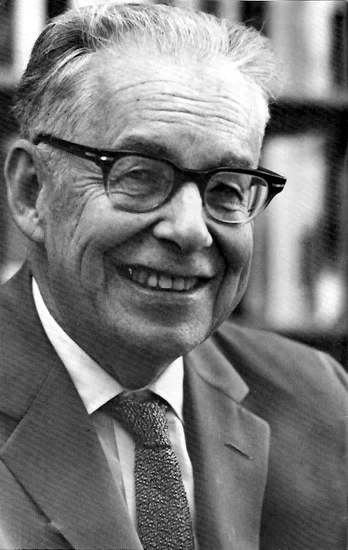
American seismologist Charles Francis Richter died after developing the earthquake magnitude scale bearing his name. His scientific contributions revolutionized earthquake measurement and public safety.
The Richter scale enabled accurate comparison of earthquake intensities worldwide. His work advanced seismology and helped communities better prepare for seismic disasters.
1990 – Patrick White Dies

Australian novelist Patrick White died after receiving the Nobel Prize in Literature for his exploration of the human condition. His complex narratives examined Australian identity and universal themes.
White’s novels like “Voss” and “The Eye of the Storm” established him as Australia’s greatest literary figure. His psychological depth and innovative style influenced countless writers worldwide.
2003 – Robert Kardashian Dies
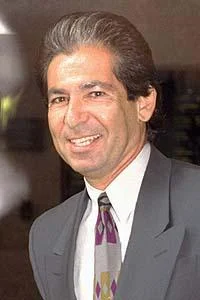
American lawyer Robert Kardashian died after gaining fame as part of O.J. Simpson’s defense team. His legal career and family life later became subjects of intense public interest.
Kardashian’s involvement in the “Trial of the Century” made him a household name. His family’s subsequent rise to fame transformed American celebrity culture in unexpected ways.
2021 – Koichi Sugiyama Dies
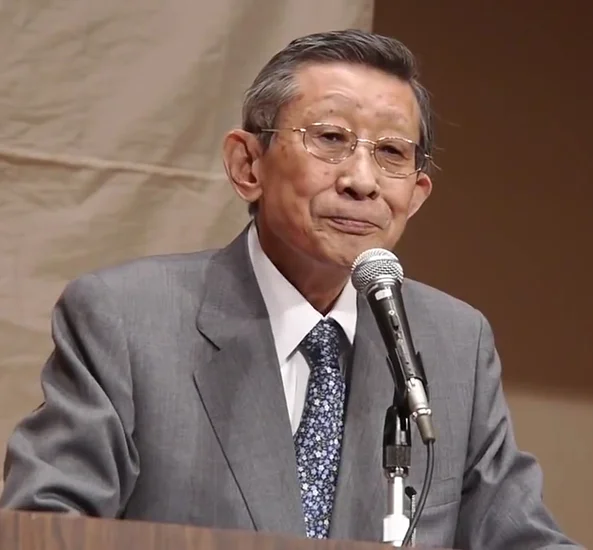
Japanese composer Koichi Sugiyama died after creating iconic music for video games, particularly the Dragon Quest series. His orchestral compositions elevated video game music to artistic heights.
Sugiyama’s sweeping melodies and complex arrangements influenced an entire generation of game composers. His work helped establish video game music as a legitimate artistic medium.
2024 – Dikembe Mutombo Dies

Congolese-American basketball player Dikembe Mutombo died after a legendary NBA career and extensive humanitarian work. His shot-blocking ability and distinctive finger wag became basketball legends.
Mutombo’s off-court charitable work in Africa demonstrated his commitment to social causes. His Basketball Hall of Fame career inspired countless players while his philanthropy improved countless lives.
Holidays and Observances on September 30
International Translation Day
The International Federation of Translators sponsors International Translation Day to recognize the crucial role of translators in global communication. This observance honors linguistic professionals who bridge cultural divides.
The day celebrates the art and science of translation across multiple languages and cultures. Events worldwide highlight the importance of accurate translation in diplomacy, literature, and international business.
Botswana Independence Day
Botswana celebrates its independence from the United Kingdom in 1966 with national festivities and cultural events. The holiday commemorates the peaceful transition from British protectorate to sovereign nation.
Citizens participate in parades, traditional dancing, and community gatherings throughout the country. The celebration reflects Botswana’s success as one of Africa’s most stable democracies.
National Day for Truth and Reconciliation
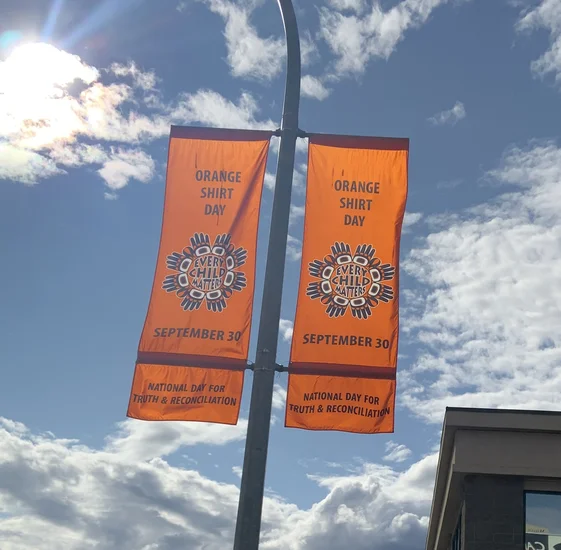
Canada observes National Day for Truth and Reconciliation, also known as Orange Shirt Day, to honor Indigenous peoples affected by residential schools. The day promotes education about historical injustices and ongoing reconciliation efforts.
The orange shirt symbolizes the experiences of Indigenous children removed from their families and cultures. Communities across Canada participate in ceremonies and educational activities to promote understanding and healing.
